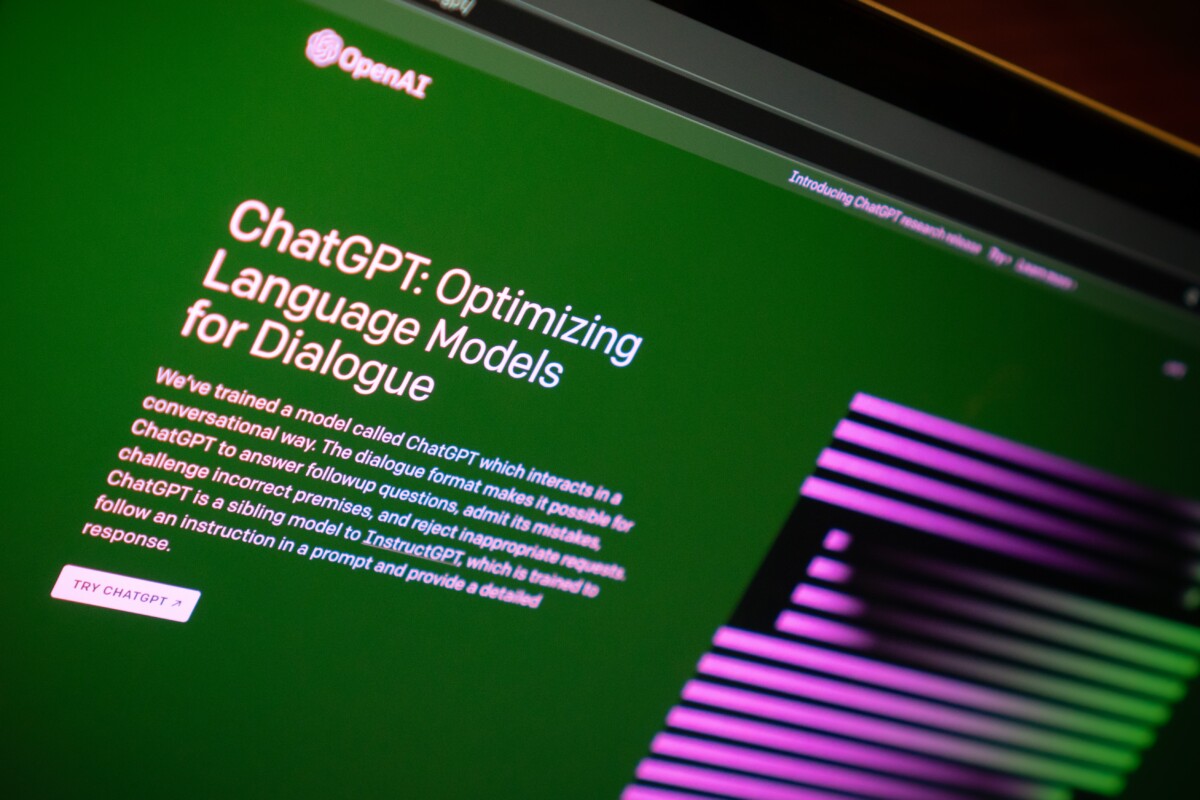More thoughts on ChatGPT from the fundraising sector

What are early views, uses and expectations of ChatGPT and other generative AI tools in the fundraising sector? Some people are sharing what they’ve learned with the latest tools and from previous research and experience, and others are highlighting some of the challenges to consider alongside the opportunities.
In my previous post I shared my thoughts on the significance of ChatGPT and similar generative AI tools for fundraisers and the organisations they work for. Here is a collection of comments, blog posts and podcasts in which other sector professionals share their thoughts and advice.
Advertisement
SOFII
The Showcase of Fundraising Innovation and Inspiration (SOFII) has published a two-part series of views on the topic. Part one of ChatGPT and fundraising – what do you need to know? features comment from Emily Casson, Digital Marketing and Fundraising Manager at The Salvation Army, Deniz Hassan, Digital Director at Astarita Aldrich & Ward, and Matt Smith, Director of Transformation & Innovation at THINK Consulting Solutions.
Emily Casson says:
“For the charity sector it could mean we can get a starter for ten on a range of strategies, plans, campaigns, research and copy, that a human can then edit, saving us precious time.
“It is great for idea generation and research, as well as copywriting, so I see it as being beneficial to small charities who don’t have a lot of resources.”
Deniz Hassan said:
“In this digitally driven age, volume of creative executions is key. ChatGPT can really be an extra resource in creating variations that can be tested, combining top performing ads and identifying trends.”
Matt Smith said:
“I’ve used it for both with writing supporter-facing communications for charity clients and to help with new product development.”
All of them raised some of the ethical issues that the use of tools like ChatGPT raise.
In part two, published this week, Cherian Koshy shared his views based on his experience both of digital fundraising and of using OpenAI’s API tools.
At the outset he suggests that the ChatGPT-3 (as it then was) is “potentially the least fascinating of the models [available from OpenAI], primarily because this one can’t currently be altered – it’s simply an ask/answer format. You ask it a question, and it gives you an answer.”
He highlights two lessons that fundraisers should be aware of as they first start using ChatGPT or other similar tools.
First, “it is important to recognise that these models are useful for a narrow set of tasks.”
Secondly, fundraisers must recognise “how important prompt engineering is to the proper output”.
He takes a sanguine and humane approach to the technology and the substantial changes it will offer and deliver for fundraisers. “I’m most excited about seeing how every organisation might use these tools to save time and resources so fundraisers can shut down their computers and spend more time with friends and family!”
As an example of generative AI in action at a charity he mentioned Canadian nonprofit Furniture Bank. Like many charities it is restricted in showing its service users – people in need for whom it collected and distributed used household items.
Its 2022 Christmas campaign therefore used AI-generated images to show pictures of people who did not exist, thereby respecting the dignity an privacy of the service users.
Raw London
Raw London consider the ethical risks and considerations of charities using AI in their creative campaigns. Those are my italics – creative communications applications of generative AI do seem to dominate charity discussions in these first months of ChatGPT-3.
Lightful Learning
Jonathan Waddingham, MD at Lightful Learning, used ChatGPT in planning his article on ChatGPT for Nonprofits: Potential and Pitfalls (14 February 2023).
Donor Growth
Last month Louis Diez and Mike Duerksen discussed “a better way to use ChatGPT” on the Donor Growth podcast.
“If you’re still feeding ChatGPT generic and simple prompts, chances are you’re getting generic results. Commodity content. There’s a better way. But you’ve got to trick ChatGPT a little bit.”
This podcast is part of the Donor Participation Project.
GivePenny
Lee Clark, founder and CEO of GivePenny, found inspiration from actor Ryan Reynolds in using ChatGPT to draft the content of a video promotion. So he did what he did:
“I asked ChatGPT to write a commercial for GivePenny. It had to use a joke, add a swear word, and let people know about GivePenny’s new, cheap subscription model for charities, whether they are big or small…”
And he shared the results.
DataKind UK
DataKind presented a webinar last month for social impact organisations on Generative AI – the tech, opportunities and risks.
The free one-hour event was for “technical and non-technical professionals from the social sector”. At the seminar the presenters explained “what generative AI is, how it might be used in the social sector, and discuss[ed] the opportunities and risks that social impact organisations should consider”.
Charity Excellence
Ian McLintock sets out How Artificial Intelligence (AI) Will Impact The Charity Sector. After definitions of generative AI and ChatGPT, he explores the impact of AI on charity jobs, charity sector ethics and AI, and he explains the first four AI-driven tools that Charity Excellence has produced.
Future Philanthropy
At Future Philanthropy Ryan Ginard asks How can nonprofits strike a ‘prose’ using ChatGPT beyond just text generation?
He highlights the value of treating the tool as more than a text generator, coming up with three use cases:
- prospect researchers can “basically scrape LinkedIn for the name, companies, roles and URL profiles of folks that went to a particular college or work at a company that has a corporate matching program”.
- exploring other data such as pulling “countless lists including search options like grantmaking foundations from 990’s using name, IRS taxonomy codes and location in relation to you”.
- you can create dashboards by utilising other apps within the commands. You can also use it to “build good UX dashboards to build out 3 years prospect pipelines etc.”
Philanthropy Masterminds
Jay Frost at Donorsearch has published two podcasts already on ChatGPT and the nonprofit sector as part of the Philanthropy Masterminds series:
“The Promise and Perils of ChatGPT for the Nonprofit Sector” with Nathan Chappell, MBA, MNA, CFRE, Sterrin Bird, CFRE, Nejeed Kassam, and Barbara O’Reilly, CFRE
“Accelerating and Maximising Fundraising with ChatGPT,” with Gayle Roberts, CFRM
There is a third edition coming up on 23 March:
- “New Frameworks for Evaluating Advanced Tech in Nonprofits: A Deeper Dive into the Pros and Cons of ChatGPT,” with Kenna Barrett, Ph.D., Nathan Chappell, MBA, MNA, CFRE, Meenakshi (Meena) Das, and Tim Sarrantonio.
Rally
Paul de Gregorio blogged about how ChatGPT might be used in mass campaigning, particularly inviting supporters to send messages to their MP.
In We asked ChatGPT to write a letter to our MP about voter suppression he shared the prompt and the result, which he declared “Not a bad first attempt. And potentially very unnerving for MPs who seem to take mass actions less seriously than individual letters.”
The potential for ChatGPT to be asked the same prompt, provided by the campaigning organisation, and to produce slightly different example messages for each supporter, could be transformational if it means that MPs start receiving thousands of distinct, unique messages on a topic. Those MPs that choose to ignore or play down mass campaigns as mere cut-and-paste activities at scale will find they won’t have that excuse any more.
Other resources
I’ll add some more resources here in due course, before we get inundated with fundraisers’ experience of this free tool.
I’ve still not seen anyone produce a playbook or simple directory of fundraising-specific ChatGPT prompts, four months after the launch of ChatGPT-3…
Nor has anyone produced a directory of tools relevant to charity fundraisers that use the OpenAI or GPT-4 API. Of course plenty of business tools will be relevant, not least with ChatGPT being built into Microsoft tools, but I am talking about any that might serve fundraisers particularly well.
Feel free to post relevant resources or examples in the comments below.







